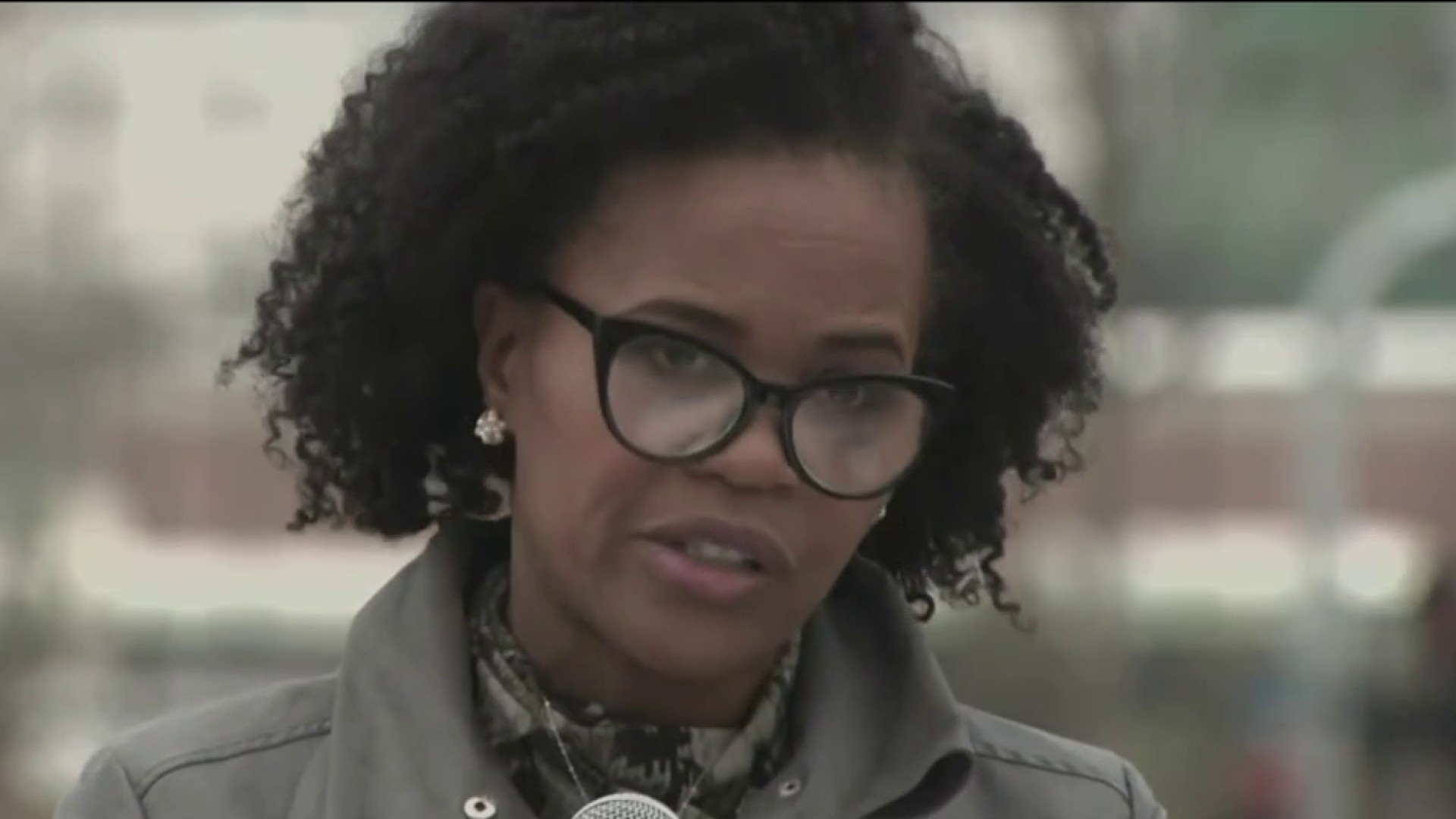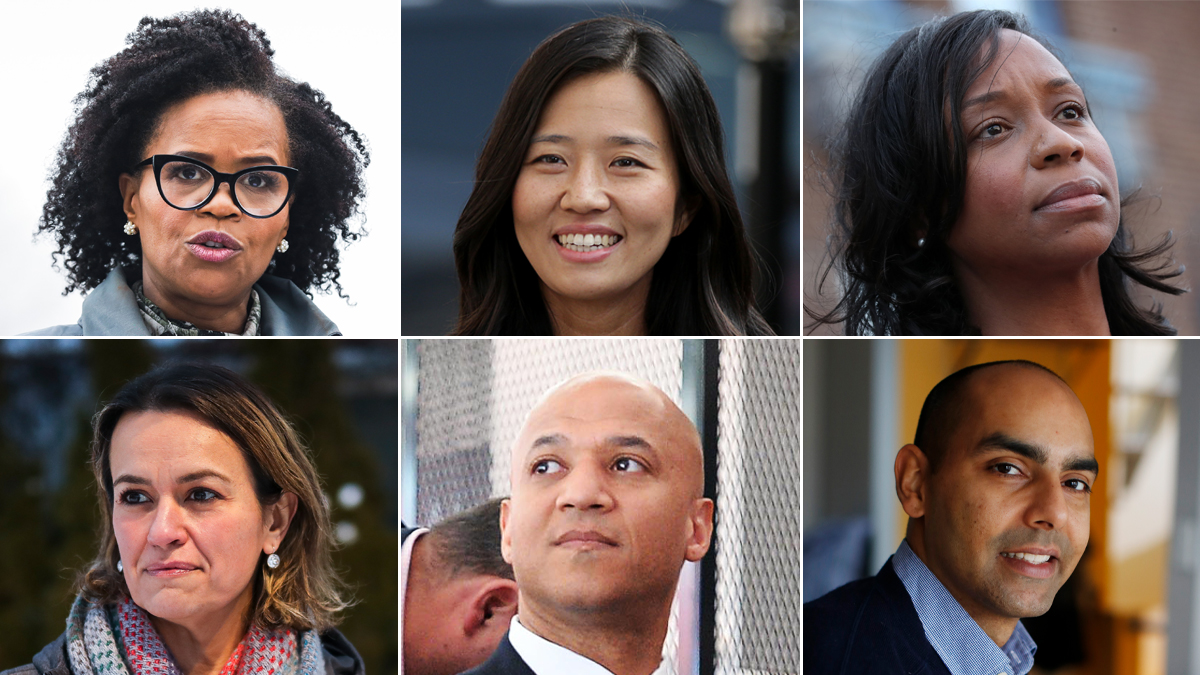Boston Mayor Kim Janey is joining public transit advocates and other officials in calling on the MBTA to restore services to pre-pandemic levels and fully fund public transportation in the agency's upcoming budget.
"We need to restore the cuts, we need to focus on a system that is transparent in terms of the restoration of these cuts and we have to prioritize communities that have been hardest hit," Boston Mayor Kim Janey said during a press conference Monday.
WATCH ANYTIME FOR FREE
>Stream NBC10 Boston news for free, 24/7, wherever you are. |
Janey urged the MBTA to make the changes "as fast as possible," alongside other stakeholders as part of the Transit is Essential Coalition, ahead of a session of the MBTA Fiscal and Management Control Board (FMCB).
Get updates on what's happening in Boston to your inbox. Sign up for our >News Headlines newsletter.
Monday's meeting was the first since MBTA officials said they would prepare a fiscal 2022 budget funding 100% of pre-pandemic service hours, a response to growing criticism about service cuts.
The state's congressional delegation has argued that the T should not cut service now and stash away the large sums of federal stimulus funding it received -- more than $1 billion already with another round on the way -- to cope with future budget issues.
"Thanks to the advocacy of the Massachusetts congressional delegation, the MBTA has secured another $435 million in operating support. In light of this new funding, I am calling for action," Janey said Monday. "MBTA services should be restored as fast as possible."
During the agency's fiscal control board meeting, the T's general manager made clear money is not an issue -- three rounds of federal aid have seen to that.
"In the initial amount right at the end of December we got $827 million. Then we got $301 million in round two. Now round 3 is going to be $845 million," MBTA GM Steve Poftak said.
Poftak says that nearly $1 billion in federal aid will be used to restore service to pre-pandemic levels.
Janey also called on the MBTA Monday to set up a "transparent" schedule for the restoration of service that prioritizes communities hardest hit by COVID-19 and where services were cut "most severely."
"We believe that all communities deserve safe, affordable, reliable and accessible public transit," said public transit advocate Olivia Nichols, of Livable Streets Alliance.
The MBTA should also continue capital investments, Janey added, from zero emission buses to a more frequent Fairmont line.
"Restoring public transportation is essential to our recovery, reopening and renewal as a city. It will make Boston more fair and more equitable," Janey said.
Janey also announced a pilot program Monday to support employees in Boston's five Main Street Districts; Nubian Square, Three Squares in Jamaica Plain, Mission Hill, East Boston, and Fields Corner.
Through the Main Streets Free Public Transit Pilot, the city will give nearly 1,000 workers in those districts free Charlie cards pre-loaded with $60 for the period of March 29 through April 19. Workers will also receive free two month Bluebike passes. People can sign up online or text free ride to 866-396-0122.
"MBTA service cuts shortchange the needs of Boston's workers and ignore the sacrifices they make each day to keep our city running. Service cuts make buses and trains more crowded, undermining our efforts to stop the spread of COVID-19," Janey said. "Cuts to transit service only deepened the inequities of our public transit system."
Chris Dempsey, executive director of the Transportation for Massachusetts advocacy coalition, noted that the federal government has provided the MBTA with a total of $2 billion over the last 12 months.
"The funds are there. Congress has been very clear that they want to see service restored, and we want to see the FMCB take that vote," Dempsey said. "We need to see clarity from the MBTA's control board that this service is coming back as soon as possible. We want them to vote today to restore service as soon as they possibly can."
Lee Matsueda, executive director of Community Labor United, emphasized the need to use those federal dollars during this time of "really great need."
"It's been clear that this funding - and they've been saying this - nearly a billion in this most recent round to the T has to be used to get back to full service and keep our workers in their jobs," Matsueda said, "jobs which are critical to their families and the maintenance operation of our system."
The meeting comes after the agency shut down a portion of Orange Line train service to make repairs after a derailment. Agenda topics include a preview of the fiscal 2022 budget as well as the T's social media strategy, a potential parcel acquisition in Quincy, and the Commercial Paper Program.
"Now more than ever, Boston needs a transit system that works for everyone. The people who stock our groceries, clean our schools and staff our hospitals rely on buses and trains to get to work," Janey said. "We count on essential workers to get us through this pandemic and essential workers count on public transportation."
Before lawmakers took aim at the T, the agency had set its sights on starting to restore some service in the summer and fall, reaching as high as 93% of pre-COVID bus service hours by autumn.
Like transit agencies across the country, the T faces reduced use and fare revenue because of the pandemic. More than a year into the crisis, average ridership is still hovering around 30 percent of pre-COVID levels.
The T's board approved a package of service cuts in December. Officials said they would both save money to cope with budget gaps exacerbated by the change in ridership and also realign the schedule to meet current demand.
One round of service cuts targeting the commuter rail system and ferries took effect in January, while a second set affecting buses and subways started March 14. Those changes slashed trip frequency by 20 percent on the Red, Orange and Green Lines and non-essential buses and by 5 percent on the Blue Line and essential bus routes.
"The problem is the negative impact of cut services on Black and Brown communities, the communities that suffered the harshest during this COVID pandemic," said Dwaign Tyndal, executive director of Alternatives for Community and Environment.
Janey was joined at the event by MBTA riders, small-business leaders and community advocates.
"For restaurants, this is absolutely critical. We literally cannot reopen if our employees cannot come to us," said Brian Moy, owner of Chinatown trio Shōjō, Ruckus, and BLR. "If our customers cannot come to us during our normal business hours, we will not be able to survive."
"I can say with certainty that everyone here today wants one simple thing - a fully functioning T that supports us bringing back our economy, bringing back Massachusetts, and we're not there yet," Livable Streets Alliance Executive Director Stacy Thompson said.
Janey has been busy since she was sworn in as Boston's first Black mayor and first female mayor last week. The historic moment put her in the national spotlight, with appearances on "TODAY" and "The Rachel Maddow Show."
Janey took over from Marty Walsh, who stepped down after being confirmed as President Joe Biden's labor secretary.
On Thursday, Janey took part in a ceremony with Gov. Charlie Baker recognizing National Medal of Honor Day and visited small businesses in South Boston.



